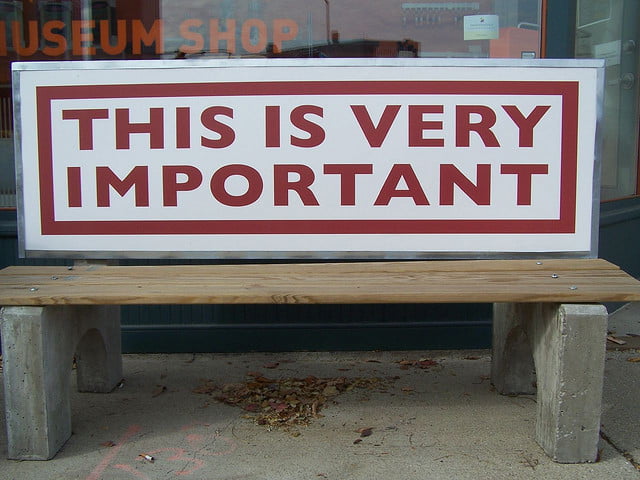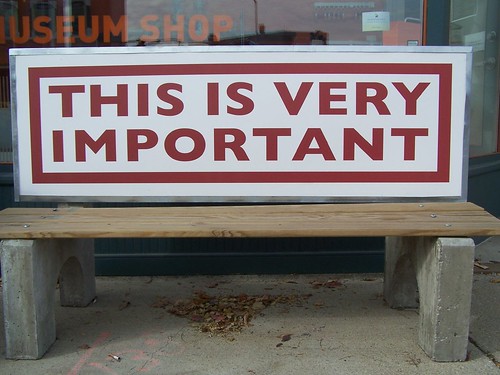The ritual dance, between the NSW Teachers Federation and the NSW Department of Education and Communities, continues over how education is organised in our state.
I do not propose to comment on my employer’s policies or my union’s response.
Educators must focus on what is truly important for our communities. Quite simply, our priorities should be:
1. reforming the HSC and re-designing how students demonstrate their learning, understandings and skills
2. professionally developing educators to support students to ‘learn how to learn’
3. authentically educating students about their democracy and civil society
4. re-designing learning spaces and structures, including the virtual and online, to better reflect contemporary needs and technological advances
5. encouraging genuine independence, innovation and risk-taking for schools including the freedom to design local, or access international, curriculum
Who agrees?


Viviene Tuckerman
I think one of the most important things we can do is help our students use social media for education and communication in a creative and positive way.
My favourite groups on edmod are where classes join up from across the globe and talk to each other about what *they think* and discuss issues that are important to them.
We have a great opportunity to connect students with each other from across the globe and publish and share their wonderful creative projects, and get to see each other’s work, and comment. There is nothing so thrilling as seeing a kid labelled IM doing a wonderful digital project of her own, publish it on edmodo and get back an avalanche of appreciative comments from kids across the world away 🙂
Deanna
Whole-heartedly agree with your list – and would add
6) provision of generous, meaningful and relevant resources, staff and training to address the specific needs of those students who have learning, behaviour, mental health and emotional difficulties – if inclusion is to be truly successful for all students.
Clare
My 2 cents worth as a parent… I’ve had 2 children go through the HSC so far and have one still in Year 9. The oldest and the youngest are at a comprehensive public high school with a good reputation in the suburbs of Sydney. The middle child went through an academically selective public girls school. Totally different experiences.
Most of my daughter’s teachers were able to work around what I see as serious systemic restrictions to support her and her classmates to enjoy learning, to explore subjects laterally and to fully explore their potential – within the restrictions of the system. However, even with all of that, the school was very focussed on teaching the girls how to maximise their chances for a good HSC/ATAR result as that helps keep the school well within the top 20 in the state.
The boys have had a decent education, delivered by teachers who mostly care, but at a school that has less imagination and less commitment to learning (in my opinion). Sport is big at this school. A couple of sports in particular.
A good example of how out of touch the system is would be the distribution of the Year 9 laptops. The list of things those kids CAN’T do with the laptops is laughable and when we were assured that “if we found our child using Facebook on it we would know that they had hacked it” I nearly got up and walked out of the parent meeting. Personally I would applaud such initiative and independence on the part of my child and I abhor the fact that the kids are locked out of ALL social media and the learning opportunities that come with access to twitter, blogging, curation tools such as storify – the list goes on.
/endrant for now 🙂
Vivian Harris
I know that this a long shot when we are still trying to teach our students the skills for lifelong learning, but I would like to see schools reach out to their communities to be centres of lifelong learning. This way students see that learning is something that we do all our lives. Also and I quote from Stephen Downes “We need to move beyond the idea that education is something that is provided for us and toward the idea that an education is something we create for ourselves.” So many people, both students and adults, are passive about education and see it as something that is “done to them”. I would like everyone to see learning as so enjoyable and stimulating that you would do it in your own time.
Darcy Moore
I too believe that the point you make by quoting:
“We need to move beyond the idea that education is something that is provided for us and toward the idea that an education is something we create for ourselves.”
is the absolute heart of the change needed!
Andrew
As someone just entering the profession it has been interesting to looking into the fishbowl that is teaching and education in NSW.
Broadly I agree with the points you put forward as sensible and well considered. Generally speaking there appears to be a range of issues that fall under the banners of structural and cultural changes. Approach and attitude. Some of these like your first point capture the chronic disparity we’ve created between what we are wishing students to learn and how we are wishing them to demonstrate that learning. I would not limit this to the HSC as it appears to encompass assessment in general for many. The truth is that our current approach seems more concerned with making it easy to compare, quantify etc.. than the learning that is (and should) be occurring.
Culturally there is an unevenness in the professionalism of those involved in education. Whilst increased professional development (PD) would be welcomed it needs to be aligned to true need and ongoing review and development of teachers. Simply exposing teachers to some form of PD does not equate to improved outcomes. The effectiveness of such needs to be well considered within a frame of individual teacher needs (which are varied). Ongoing reflective practise and a more supportive environment for true improvement of ‘all’ teachers would go a long way. This is not to say that this does not occur some places, but in my exposure it unfortunately appears to be inconsistent.
Whilst I embrace the need to align with contemporary needs and technologies, I feel that this needs to be closely linked to the afore mentioned PD, and further aligned with those local initiatives you mentioned. My fear is that there is almost a fad-ish approach to the use of technology without clear evidence of improved learning outcomes and that some of the broad imitative fail to be flexible enough to to cater for the diverse needs of different schools. As such, to often it seems that there are skunk-works going on by either individual teachers, faculties or schools to circumvent such limitations.
It’s an interesting time for education in NSW. Schooling that is still very much situated in the past – classrooms, bells, subjects, year groups, yet groping towards the future which in many ways is being forced upon it, which is demanding many of the skills we don’t explicitly teach – creativity, interdisciplinary knowledge, and life long learning.
Darcy Moore
Thanks Andrew for such a thoughtful response, especially re: your comment about the ‘fishbowl’ and final paragraph – both resound.
Nordin Zuber
Thanks Darcy for refocusing us on what is actually important!
How we are ruled by that HSC process! And the ultimate irony is it doesn’t even produce what the universities want: students with the very skills you describe!
In the context of the current discussions, we then should ask: Which structure better allows schools and teachers to focus on those “very important issues”? Is it a centrally controlled structure or a *genuinely* devolved one? Are we building structures that support risk taking, change and experimentation?
Sadly, I think we won’t win the “freedom to design local, or access international, curriculum” – the tide is swimming in the opposite direction: more control, more structure to say what is taught. Personally, I don’t have a problem with that, so long as the curriculum allows sufficient time to teach the material for understanding, to be creative with the content and to put it different contexts for local conditions. And just as importantly, that the formal syllabus leaves sufficient time in the school week to pursue student and local community driven learning goals beyond the formally prescribed curriculum. We can but dream….
Paul
Very nicely put although rather than a usual comment in support I’d like to add a musing and a question.
The musing is that all of this is not new. I know that this is our current debate but those of us born before PLNs (!) realised that this debate has been going on for years and that is still as far from resolution as it has ever been. For example, the current focus on the use of BYOT(D) is but a manifestation of the fight I had in the late 1970s (and, sadly, et seq) for the use of computers in schools and classrooms (last week’s focus was on using smartphones for good not evil). The reform of examinations has been with me since I became a board member of a national exam in 1978. Whilst I agree, you are following a well-travelled road.
Now the question. I have just changed jobs quite radically although still in education. I find the current post a considerable challenge but one that gets me into school earlier and leaving later than my previous one (and that with joy, not dread). I need to make things happen in a whole school way because that’s my remit. I have read, studied and contributed to, a vast amount of work on reform and management in schools and yet there is one element sometimes mentioned but rarely explored. Currently, it comes to me as a research question but also as a daily experience. So “to what extent does culture drive change?”. There it is! I go to my place and find there is less support for a learning culture than I would like. I can’t get into the reforms until I get the community response behind them. If parents see no value in education then all my words are of no use. I’m not sure I have the answer but now at least I have the question.
So, add number 6 – developing a learning culture in the suburb.
You often quote, with admiration, the Scandinavian and SE Asian reforms and successes. I would guess that their societies are more fully behind reform than some of ours. BTW, if you do know the secret formula please DM it – it’ll save me a lot of thinking I can use elsewhere.
Darcy Moore
Paul,
I agree. Our attitudes towards learning and education concern me more than any other point in my list: http://darcymoore.net/2012/02/08/all-our-jobs/
@Darcy1968
Lloyd Bowen
I agree with the majority but not the entirety of your points made. In particular I like point two. How we initially train and then develop teachers is of essential importance in improving the learning outcomes of students.
Darcy Moore
Thanks Loyd, I agree! Here’s a post before I commenced ‘training’ teachers at my local university: http://darcymoore.net/2012/01/11/the-best-of-both-worlds-an-anecdote/